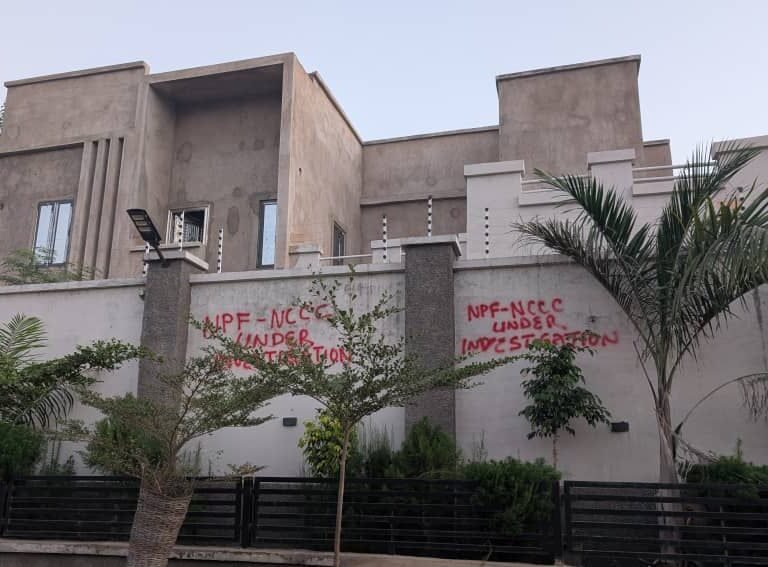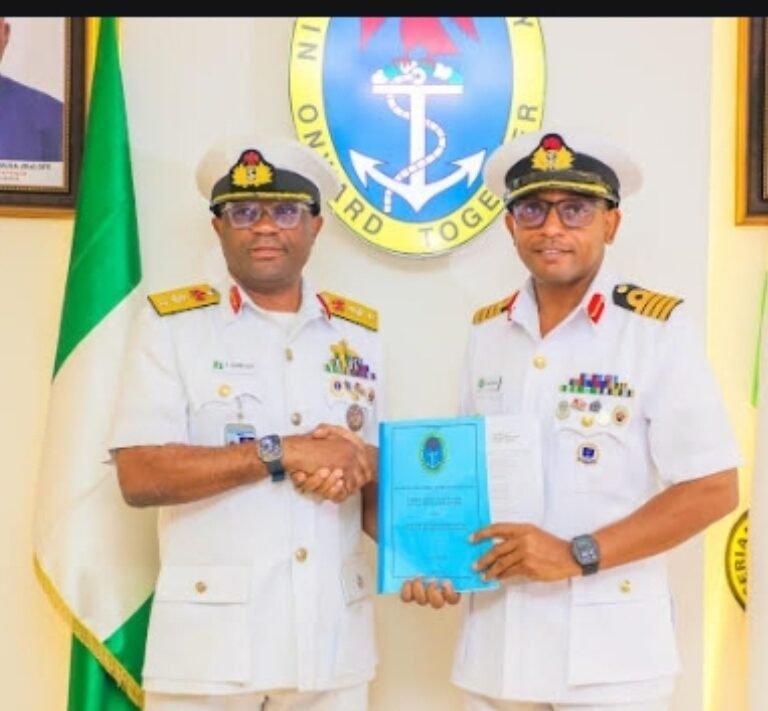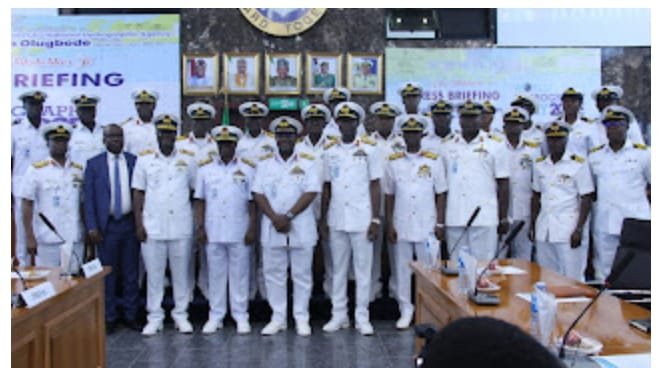
By Uriel Ihotu
In a strategic push to enhance maritime safety, environmental protection, and regional cooperation, the Nigerian Navy and the National Hydrographic Agency will co-host the 2025 World Hydrography Day Celebration and the West African Hydrographic Summit in Abuja from June 19 to 21.
At a press conference in Abuja, Rear Admiral Ayodeji Olugbode, the Hydrographer of the Federation, announced that this year’s event aims to align Nigeria’s maritime strategies with global frameworks such as the United Nations Sustainable Development Goals (SDG 14 – Life Below Water) and the African Continental Free Trade Agreement (AfCFTA).
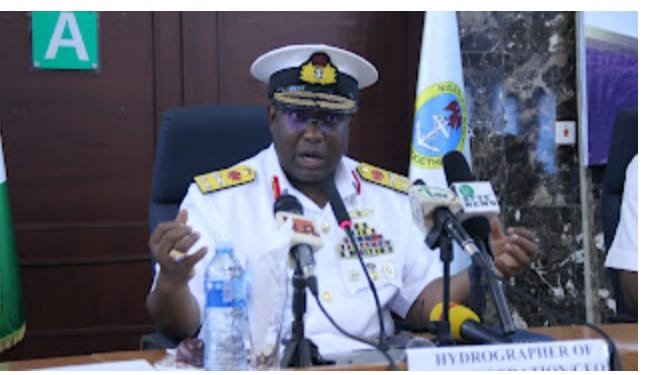
Rear Admiral Olugbode emphasized the significance of oceans to human survival and planetary health, noting that although oceans cover 71% of the Earth’s surface, only 26% of the seabed has been mapped to modern standards. He stressed the need for African nations, particularly in West Africa, to lead efforts in seabed mapping and ocean sustainability.
“This summit presents a unique opportunity for Nigeria to drive regional alignment with international maritime objectives,” he said. “It will also bolster support for the Seabed 2030 Initiative, a global programme aimed at mapping the entire ocean floor by the year 2030—crucial for safe navigation, climate resilience, and economic development.”
Highlighting Nigeria’s commitment to technological innovation, Rear Admiral Olugbode revealed that the summit will feature live demonstrations, exhibitions, and industry presentations showcasing cutting-edge hydrographic tools, including unmanned survey vehicles and AI-based mapping technologies now deployed by the agency.
As part of capacity building, he disclosed that 15% of Nigerian Navy personnel are trained hydrographers, while 11 officers are undergoing further training abroad. He also spoke about the recent “Empowering Women in Hydrography” initiative, which screened 18 women with STEM backgrounds for integration into global hydrographic training through the International Hydrographic Organization (IHO).
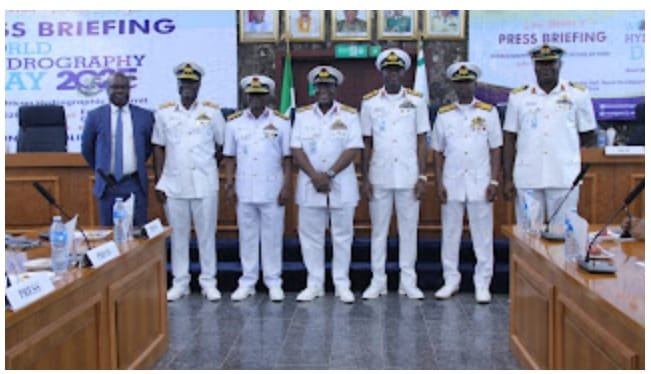
On the issue of funding and sustainable development, Rear Admiral Olugbode stated that developmental banks will be in attendance to understand the broader socio-economic impacts of hydrography, beyond training.
The three-day event will commence on June 19 with exhibitions and the unveiling of a proposed West African Regional Office and Training Centre for Electronic Navigational Charts, to be hosted by Nigeria.
On June 20, a technical plenary will focus on topics such as seabed mapping, blue economy strategies, and hydrographic innovation. The celebration will culminate on June 21 with keynote speeches, panel discussions, and an awards and gala night to honour individuals and institutions who have significantly contributed to the advancement of hydrography in Nigeria and the region.
Media360impact reports that this event will bring together key players from government, international maritime bodies, hydrographic offices, navies, academic institutions, and the private sector. It aims to foster regional collaboration, promote innovation, and reaffirm the centrality of hydrography in achieving sustainable ocean governance.
“The ocean is humanity’s last great frontier,” Rear Admiral Olugbode concluded. “This summit is not just for hydrographers it’s a call for collective action to protect and responsibly harness our marine resources.”



